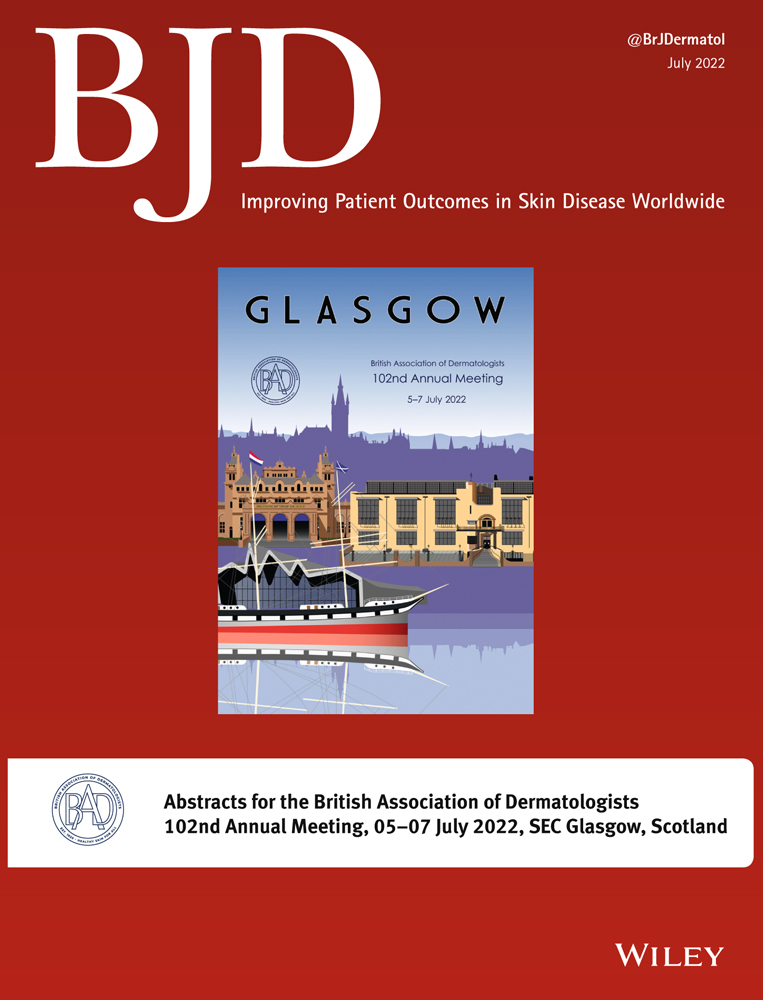GD13: Impact on quality of life of patients and their family members with dermatological and other chronic conditions in the Bahamas
Chanta’l Clare-Kleinbussink,1,2 Flora Kiss,1 Morton Frankson,2 Andrew Finlay3 and Jui Vyas1
1Centre for Medical Education and 3Division of Infection and Immunity, School of Medicine, Cardiff University, Cardiff, UK; and 2University of The West Indies School of Clinical Medicine and Research, Nassau, Bahamas
Skin and other health conditions affect the quality of life (QoL) of not only patients, but also family members, with implications for care decisions. However, there is no information about this in the cultural setting of the Bahamas. The aim of this pilot study was to compare the QoL impact of dermatological and other chronic conditions on patients with the QoL impact on their family members. A cross-sectional study using validated QoL questionnaires was conducted in clinics in the Bahamas. In the dermatological arm, adults (aged ≥ 17 years) completed the Dermatology Life Quality Index (DLQI), while children (aged 4–16 years) completed the Children’s DLQI (CDLQI). Their family member completed the Family Reported Outcome Measure (FROM-16) and the Family Dermatology Life Quality Index (FDLQI). In the other chronic conditions arm, adults (aged ≥ 17 years) with rheumatoid arthritis, diabetes and chronic kidney disease completed the World Health Organization’s Quality of Life questionnaire-BREF (WHOQoL-BREF) and children (aged 4–16 years) completed The Revised Children’s Quality of Life Questionnaire (KINDL-R). Their family member completed the FROM-16. Data were analysed with SPSS (IBM, Armonk, NY, USA). There were 44 participants: 22 family members and 22 patients. Eleven family members (50%) were parents, nine (41%) were partners, one (4%) an adult child and one (4%) a sibling. In the dermatological arm (n = 26) there was a weak negative relationship between DLQI and FDLQI scores (r = –0·23, P = 0·55) and no relationship between the DLQI and FROM-16 scores (r = –0·04, P = 0·92). There was a strong positive relationship between CDLQI and FDLQI scores (r = 0·83, P = 0·17) and between CDLQI and FROM-16 scores (r = 0·82, P = 0·18). In the dermatology family members, there was a strong positive relationship between FROM-16 and FDLQI scores with affected adults (n = 13; r = 0·73, P = 0·03) and children (n = 4; r = 0·99, P = 0·02). In the other chronic conditions arm (n = 18) there was a significant negative inverse relationship between WHOQoL-BREF and FROM-16 scores (r = –1·000, P < 0·001) but no relationship between KINDL-R and FROM-16 scores (r = –0·24, P = 0·61). This pilot study has demonstrated the great impact that skin and other chronic conditions have on the QoL of patients and family members in the Bahamas, and has confirmed the utility in this setting of the questionnaires used. The study has established the practicality of carrying out a planned much larger study to confirm these findings and to assess cultural differences by comparing them with a similar parallel study in the UK.




